 W
W"Blame It on Me" is a 1994 song by Northern Irish musical group D:Ream, released as the sixth and last single from their album, D-Ream On Volume 1. It is written by frontman Peter Cunnah and features backing vocals by Jamie Petrie and Linda Duggan. Produced by Tom Frederikse, it peaked at number 25 on the UK Singles Chart.
 W
W"Bombollini" is a song by British singer-songwriter Chris Rea, released in 1984 as the second single from his sixth studio album Wired to the Moon. It was written by Rea, and produced by Rea and Dave Richards. The song failed to make a chart appearance on the UK Singles Chart but reached No. 21 on the Irish Singles Chart.
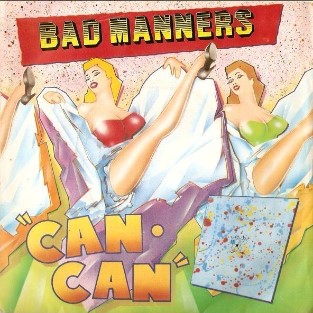 W
W"Can Can" is a song by British 2-tone/ska band Bad Manners, released in June 1981 as the first single from their third album Gosh It's... Bad Manners. It is an instrumental song, based on the music "Galop infernal" written by French composer Jacques Offenbach which was later adopted as the music for the dance the can-can. The arrangement was credited to Bad Manners. It peaked at number 3 for four weeks on the UK Singles Chart, becoming the band's joint biggest hit with "Special Brew".
 W
W"Cry Boy Cry" is a song by British new wave band Blue Zoo, released in 1982 as the third single from their 1983 debut album Two by Two. The song is the band's biggest hit, and their only top 40 entry, reaching No. 13 on the UK Singles Chart in October 1982.
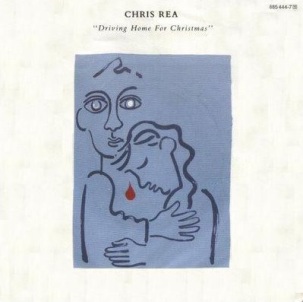 W
W"Driving Home for Christmas" is a Christmas song written and composed by British singer-songwriter Chris Rea. The first version was originally released as the b-side to his single "Hello Friend" in 1986. In October 1988, a re-recorded version served as one of two new songs on Rea's first compilation album New Light Through Old Windows. It was issued as the fourth single from the album in December 1988, where it peaked at number 53 on the UK Singles Chart as the lead track of The Christmas EP.
 W
W"Fool " is the title of a popular song originally released in 1978 by the British singer-songwriter Chris Rea. Rea also wrote the lyrics and composed the music of the song, which appears on his 1978 debut album, Whatever Happened to Benny Santini? The single's charting success in the USA earned him a Grammy nomination as Best New Artist in 1979.
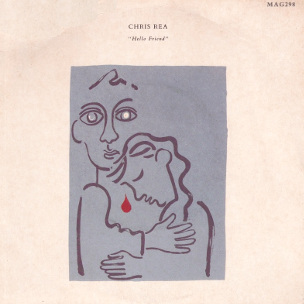 W
W"Hello Friend" is a song by British singer-songwriter Chris Rea that was released in 1986 as the third single from his eighth studio album On the Beach. The song was written by Rea, and produced by Rea and David Richards.
 W
W"I Can Hear Your Heartbeat" is a song by British singer-songwriter Chris Rea, released in 1983 as the second single from his fifth studio album Water Sign. It was written by Rea, and produced by Rea and David Richards. "I Can Hear Your Heartbeat" reached No. 60 in the UK and No. 14 in Ireland.
 W
W"I Don't Know What It Is But I Love It" is a song by British singer-songwriter Chris Rea, released in 1984 as the lead single from his sixth studio album Wired to the Moon. It was written by Rea, and produced by Rea and Dave Richards. The song reached No. 65 in the UK Singles Chart and remained in the Top 100 for four weeks. It also peaked at No. 23 on the Irish Singles Chart.
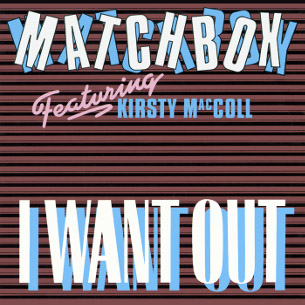 W
W"I Want Out" is a song by English rockabilly band Matchbox featuring Kirsty MacColl. It was released in 1983 as the third and final single from the band's sixth studio album Crossed Line (1982). It was written by Brian Hodgson, Ray Peters and Tony Colton, and produced by Hodgson.
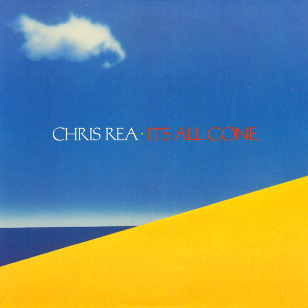 W
W"It's All Gone" is a song by British singer-songwriter Chris Rea that was released in 1986 as the lead single from his eighth studio album On the Beach. It was written by Rea, and produced by Rea and David Richards. "It's All Gone" reached No. 69 in the UK Singles Chart and remained in the Top 100 for four weeks.
 W
W"Jealous Mind" is a song recorded by Alvin Stardust from 1974, written and produced by Peter Shelley. "Jealous Mind" was Stardust's only number-one single in the UK Singles Chart, spending a single week at the top of the chart in March 1974. The single was released on Magnet Records.
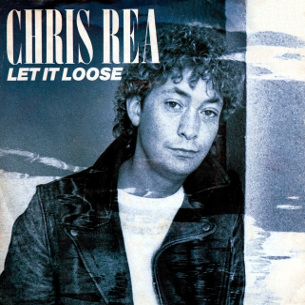 W
W"Let It Loose" is a song by British singer-songwriter Chris Rea, which was released in 1983 as the lead single from his fifth studio album Water Sign. The song was written by Rea, and produced by Rea and Dave Richards. "Let It Loose" reached No. 85 in the UK Singles Chart and remained in the Top 100 for four weeks.
 W
W"Let's Dance" is a 1987 single by British singer-songwriter Chris Rea. The song first appeared in an early form as a B-side to the "It's All Gone" single in 1986 and was re-recorded for his 1987 album, Dancing with Strangers. It reached a peak of No. 12 on the UK Singles Chart, remaining in the top 100 for 10 weeks, while in the United States, it peaked at No. 81 on the Billboard Hot 100 and charted for five weeks. In New Zealand, it reached No. 2 for three nonconsecutive weeks, and it also peaked within the top 10 in Australia, Ireland, and South Africa.
 W
W"Lip Up Fatty" is a single released by British 2 Tone and ska band Bad Manners in June 1980, which reached No. 15 in the UK Singles Chart. It is one of a number of songs by Bad Manners about 'being fat',. According to Bloodvessel "Lip Up Fatty" was an expression used at his school "to tell people to shut up". Its signature melodic lines were a simple but careful blend of brass instruments and lead harmonica theme, played by Alan Sayag.
 W
W"Loving You" is a song by British singer-songwriter Chris Rea, released in 1982 as the lead single from his fourth studio album Chris Rea. It was written by Rea and produced by Jon Kelly and Rea. "Loving You" reached No. 65 in the UK Singles Chart and remained in the Top 100 for three weeks. It also peaked at No. 88 on the US Billboard Hot 100.
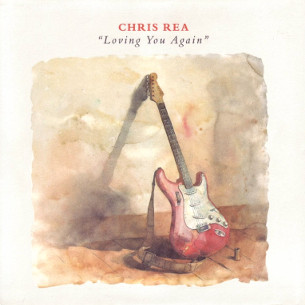 W
W"Loving You Again" is a song by British singer-songwriter Chris Rea, which was released in 1987 as the lead single from his ninth studio album Dancing with Strangers. The song was written and produced by Rea. "Loving You Again" reached No. 47 in the UK Singles Chart and remained in the Top 100 for four weeks.
 W
W"On the Beach" is a song by British singer-songwriter Chris Rea that was released in 1986 as the second single from his eighth studio album, On the Beach. It was written by Rea and produced by Rea and David Richards. "On the Beach" reached No. 57 in the United Kingdom in 1986 and also charted in France and the Netherlands.
"The Road to Hell" is a two-part song written by British singer-songwriter Chris Rea and released on the album of the same name. It was released as a single, with only part 2 on the A-side of the 7". The single was his biggest success in the United Kingdom, peaking at number 10 on the UK Singles Chart. The song was inspired by the frustrations of M25 and M4 motorway rush-hour traffic.
 W
W"Running Around Town" is a 1995 song by German artist Billie Ray Martin, the former lead singer of Electribe 101, and was released as the second single from her debut solo album, Deadline for My Memories. Written by Martin, it reached moderate success on the charts in Europe, peaking at number 19 in Finland and number 29 in the UK. It also reached number 3 on the US Billboard Hot Dance Club Play chart and number 22 on the Billboard Dance Sales chart. A music video was also made to accompany the song.
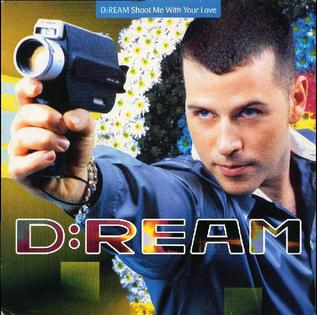 W
W"Shoot Me with Your Love" is a 1995 song by Northern Irish band D:Ream, released as the first single from their second album, World. It was.the first of a three-single Top 40 run in the year 1995 for the band and alo the highest peaking, reaching number seven on the UK Singles Chart. The follow-ups, "Party Up the World" and "The Power ", reached number 20 and 40, respectively.
 W
W"Special Brew" is a song by British 2-tone and ska band Bad Manners, released in September 1980 and was the third single from their first album Ska 'n' B. It was the band's joint biggest hit in the UK, reaching number 3 in the UK Singles Chart, where it stayed for two weeks. The song takes its inspiration from the Carlsberg lager Special Brew and is about someone who loves it like a significant other.
 W
W"Stainsby Girls" is a song by British singer-songwriter Chris Rea, released in 1985 as the lead single from his seventh studio album Shamrock Diaries. It was written by Rea, and produced by Rea and Dave Richards. "Stainsby Girls" reached No. 26 in the UK and remained in the charts for twelve weeks.
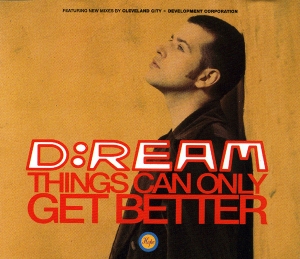 W
W"Things Can Only Get Better" is a song by Northern Irish musical group D:Ream. The Labour Party used it as a theme during the party's successful campaign in the general election of 1997. The song took several months to reach the top of the UK Singles Chart. Originally a club hit, pop success took much longer for the song—initially, it reached only number 24 on the chart in January 1993. Band member Al Mackenzie left later that year, and remaining member Peter Cunnah took the band in a more pop-friendly direction. "Things Can Only Get Better" was remixed and became a bigger hit, spending four weeks at number one in January 1994. In addition, the song managed to reach the top 10 in eight countries. In the US, it peaked at number seven on Billboard Hot Dance Club Play chart.
 W
W"U R the Best Thing" is the debut single by Northern Irish musical group D:Ream. Originally a club hit released in 1992, the song has been remixed and re-released two times: in 1993 and in 1994. The 1994 version, also known as the Perfecto Mix, was most successful peaking at number 3 in Scotland, number 4 on the UK Singles Chart and number 6 in Ireland. It also peaked at number 13 on the Eurochart Hot 100. The 1993 version reached number 1 on the Billboard Hot Dance Club Play chart in the US. There were made three different music videos for the song.
 W
W"Unforgiven" is a 1993 song by Northern Irish musical group D:Ream. Written by band members Peter Cunnah and Al MacKenzie, it peaked at number 29 in the UK and number 10 in Portugal. After the success of the singles "U R the Best Thing" and "Things Can Only Get Better", it was re-released in 1994. A music video was also made to accompany the song.
 W
W"Walking in the Sunshine" is a song by British 2-tone/ska band Bad Manners, released in September 1981 as the second single from their third album Gosh It's... Bad Manners. It peaked at number 10 on the UK Singles Chart.
 W
W"When You Ask About Love" is a song written by Jerry Allison and Sonny Curtis and recorded by the Crickets in 1959. It was a hit in the UK, reaching number 27 in the Singles Charts.
 W
W"Your Loving Arms" is a 1994 song by German singer Billie Ray Martin, the former lead singer of Electribe 101. It was released as the first single from her debut solo album, Deadline for My Memories. Written by Martin and David Harrow, it is known to be one of her most notable singles. It was produced by English electronic dance group the Grid and was originally released on 31 October 1994. The track found greater chart success in 1995, when it peaked at number one in Italy and on Billboard's Hot Dance Club Songs and number 6 on the UK Singles Chart. On the Eurochart Hot 100, "Your Loving Arms" reached number 21. There were made two different music videos for the song. In 1996, Mixmag ranked it at number 47 in its 100 Greatest Dance Singles Of All Time list.